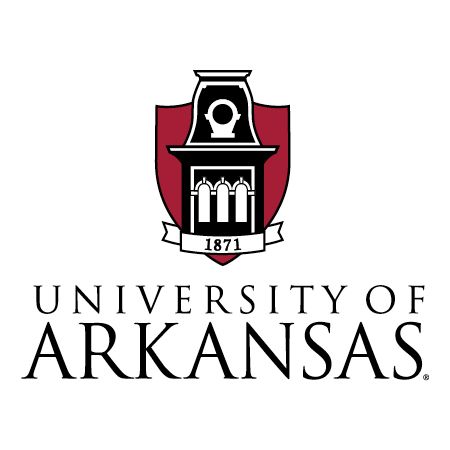Community Design Center, Office for Sustainability Involved in Design for South Dakota Center
FAYETTEVILLE, Ark. – The University of Arkansas Community Design Center and the U of A Office for Sustainability will partner with the rural city of Freeman, South Dakota, to design a master plan, conduct community engagement activities, and create a conceptual design for the Freeman Arts/Earth Center in South Dakota.
Freeman, a community of 1,300 residents, has been awarded a $150,000 Our Town grant from the National Endowment for the Arts for this project. Boston & Western, economic development expert experts, also will be working on the project. Our Town grants invest in projects that contribute to the livability of communities and place the arts at their core.
The Community Design Center and the Office for Sustainability will use the NEA grant to prepare designs for a food production greenhouse complex coupled with an arts center capable of supporting the area’s strong and vibrant arts, heritage, and agricultural traditions. The planning and development is scheduled to take place over the next year. Economic development experts Boston & Western Corporation will also partner on the project.
Freeman has grown to become a vital economic and cultural anchor in the region adjacent to the Sioux Falls metropolitan area. The city has a strong tradition of agriculture, performing arts and music, and a heritage with strong ties to the Mennonite tradition.
The Community Design Center will be the lead designer for a 16,000-square-foot cultural center, which will house a 400-seat theater, a 120-seat recital hall and space for arts and agriculturally based programming.
The center will combine tourism, arts training and performances and commercial agricultural activities, including artisanal and heritage food production systems. It will also feature educational and research programs centered on sustainable agriculture and land stewardship practices.
“We are excited by this new plateau in community development that combines livelihoods in the cultural arts with urban agriculture,” said Steve Luoni, Community Design Center director. “The proposal models holistic synergies in town development called ‘transition towns.’ Transition towns stage the next level of social and economic organization necessary to achieve true sustainability and resiliency. Given the unrivalled community traditions in Upper Plains states, it makes sense that this unique partnership including scientists, designers, artists and financiers finds itself in South Dakota.”
The plan will feature integration of modulated commercial food production systems based upon the Greenhouse Village model, a closed-loop building design framework pioneered by the Innovation Network in the Netherlands.
The ecological engineering team from the U of A Office for Sustainability will develop a set of preliminary designs to evaluate the production potential for four alternatives for greenhouse-based production, including integrated aquaculture and hydroponic production of vegetables, incorporation of solar heat, natural gas, and wind energy for heating and light, and integrated water and soil systems for nutrient management.
“This project will provide the city of Freeman with the opportunity to create their future through integration of the strong agricultural roots and arts traditions in their community,” said Marty Matlock, executive director of the Office for Sustainability and professor of biological and agricultural engineering in the College of Engineering. “The incorporation of the community’s core values, represented through the arts, with economic development through greenhouse-based sustainable agriculture is a new model of prosperity for rural communities.”
This NEA grant for the project in Freeman is one of 66 Our Town grants totaling $5.073 million and reaching 38 states in the Our Town program’s fourth year of funding. This is the third NEA Our Town grant for which the Community Design Center has been the lead designer.
“The support of the NEA is immensely important to us,” said John Koch, project director of the Freeman Arts/Earth Center. “It’s not just the financial support. It is an affirmation that the shared vision of our community is worthy of full and serious consideration.”
The Community Design Center was founded in 1995 as part of the Fay Jones School of Architecture. The center’s professional staff members are nationally recognized for their expertise in urban and public-interest design, and their work has received more than 100 design awards, including a 2014 Charter Award from the Congress for the New Urbanism for their Fayetteville 2030: Food City Scenario project.
Topics
Contacts
Steve Luoni, director
Community Design Center
479-575-5772,
sluoni@uark.edu
Marty Matlock, executive director
Office for Sustainability
479-575-6712,
mmatlock@uark.edu
Michelle Parks, director of communications
Fay Jones School of Architecture and Design
479-575-4704,
mparks17@uark.edu
Headlines
Affairs of the Heart
Find out how biomedical engineering professor Morten Jensen is developing innovative devices to produce better outcomes in cardiovascular medicine.
Students, Faculty and Alumni Kick Off Centennial Year of School of Law
Founded April 14, 1924, the School of Law faculty, students and alumni started the celebration of its centennial year with a Founders Day event and will continue with more commemorative events this coming fall.
Yearly Academic Award Winners, Ambassadors Recognized by Bumpers College
Schyler Angell, Lexi Dilbeck, Cason Frisby, Tanner Austin King, Anna Brooke Mathis, Carrie Ortel, Lucy Scholma, Kadence Trosper and student ambassadors were honored at the college's annual reception.
World Premiere of 'Cries from the Cotton Field' Slated for May 8
Cries from the Cotton Field chronicles the journey of 19th century Italian immigrants from northern Italy to the Arkansas Delta and ultimately to Tontitown. It will premier at 6 p.m. May 8 in Springdale Har-Ber High School.
Fay Jones School's Earth Day Event Spotlights Sustainable Materials and Projects
"One day doesn't seem like a lot, but one day can empower individuals and groups, energize them to work for change and innovate for transformative solutions," professor Jennifer Webb said of the students' design work.





